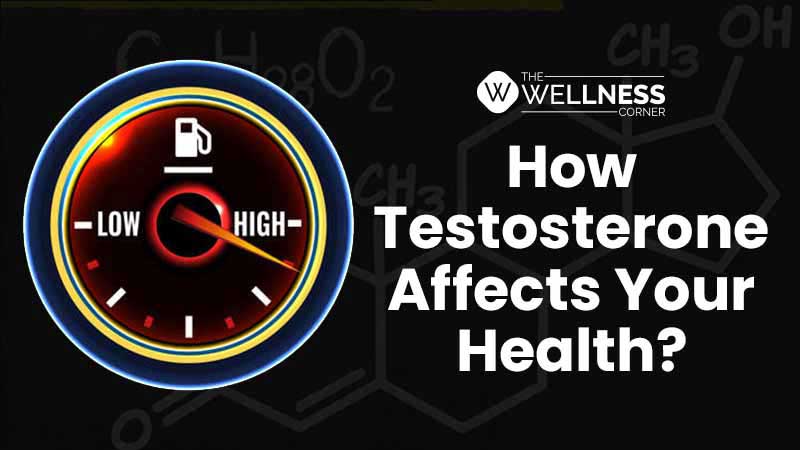How Testosterone Affects Your Health
- 41 months ago
Bodies secrete hormones to control physiological processes. There are about 50 different hormones in the human body, with testosterone being the most important for masculine traits.
Throughout your life, the amount of testosterone in your body will naturally vary. However, if your testosterone levels are out of balance, it may have serious consequences for your health and well-being.
The prevalence of low testosterone much exceeds that of high testosterone. Nearly 40% of men over 45 have low testosterone and the signs that go along with it.
What is Testosterone?
Humans and animals both produce testosterone, a hormone. Testicles are where most of the testosterone is produced in males. In women, the ovaries produce a tiny quantity of testosterone, but it is still present.
During puberty, testosterone production rises dramatically and then declines beyond the age of 30 or so.
Testosterone is most often linked to arousal and sperm production, but it also has other functions. Bone and muscle mass, fat storage, and even red blood cell production are all impacted.
The amount of testosterone in a man’s body may have an impact on his mood as well.
Signs of testosterone deficiency
If your testosterone levels are lower than normal, it is known as hypogonadism, or testosterone shortage may be present.
It may impact your health and quality of life, but it is treatable. Symptoms of low testosterone include:
- Erectile dysfunction
- Fatigue
- Decreased body hair
- Weight gain
- Infertility
- Moodiness
- Low sex drive
- Thinning bones (osteoporosis)
If these symptoms seem similar, make an appointment with your doctor to rule out a hormone imbalance.
Essential for men’s health
The male testes produce testosterone. This hormone helps in the development of a male newborn’s sex organs. Throughout puberty, testosterone is important in the transformation of boys into men. Face hair increases, muscles develop, and the voice deepens. With age, testosterone becomes more vital to a man’s sexual function.
Testosterone affects the body
Low testosterone may impact a man’s sexual health and well-being. Erection maintenance is problematic in low testosterone males. They may have fewer and weaker erections. Less testosterone means less desire for sexual activities (libido). These factors may reduce sexual interactions and also adversely affect romantic relationships.
Check your testosterone levels with the Truworth Gym Male Package
Other effects of low testosterone include weight gain, loss of energy, obesity, and mass muscle reduction, mood swings, and distractibility.
Boost testosterone naturally
Following are some ways to increase testosterone naturally:
Start Resistance Training
Resistance training is the best way to raise testosterone levels. You don’t have to be an expert to perform regular free weight workouts that produce a hormonal response. Pushing your muscles rips the muscle tissue. When this happens, your body uses testosterone to help you recover and grow.
Weight lifting does so much more than only increase testosterone levels. It improves cardiovascular health, reduces accident risk (especially for people over 50), improves sex, clarity of thought, blood sugar control, self-esteem, and reduces weight.
You may also like: What Actually Increases Your Testosterone and What Doesn't?
Drink Milk Before Bed
It is suggested that a lot of testosterone is produced during sleep. If you want to speed up the process, consider drinking full-fat milk (whole milk) just before bed.
Whole milk before bedtime boosts melatonin synthesis that could help you fall asleep quicker. Morning stiffies, a clear indication of high testosterone levels, are one method to determine whether your nocturnal whole milk testosterone experiment is working.
Conclusion
Testosterone is often cited as a factor in men’s sexual drive. A simple blood test may be performed to determine your testosterone levels. Males who have low levels of testosterone may benefit from a testosterone therapy prescription.








